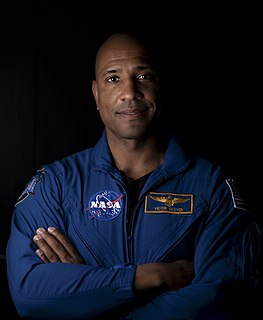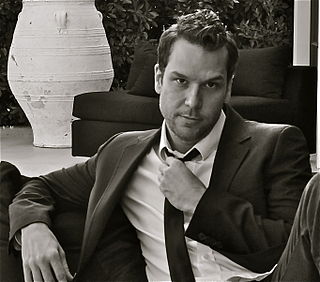A Quote by Victor J. Glover
People watched launches and tears ran down their faces, and then their kids would go jump into an encyclopedia or look online and read about rocket science. That's power.
Related Quotes
No matter how much we're on our phones, going to the show is the goal - you look at things online and watch videos and read blogs and comment, all so that you can go in person and see it yourself, and meet these people in real life, and then so you can go home and talk about it again on your screen.
Will there ever be an encyclopedia? Possibly. I would say two things about the encyclopedia: firstly, I’ve always said and I stand by it, whenever I do do a printed encyclopedia I would like all the proceeds to go to charity. Back in 1998 I never dreamt I personally I would be in the position that I could set up a large charitable foundation and personally do things for charity, and I’ve done other charity books already.
One of my first role models was Eugene Lang, a wealthy businessman who went back to his elementary school in East Harlem and addressed the sixth-grade class. He looked out at that sea of faces and said, "If any of you wants to go to college, I will pay for it." When I read that, I burst into tears. It was so generous and so basic. Not fluffy. I can't understand why we scrimp on education and shortchange our kids. Why would the citizenry do that to the people who are going to inherit its republic?
I'm not sure Riot Grrrl would have been as big a deal if the Internet had existed back then. Because there's so much stuff on the Internet. People could have been like, oh, whatever, I'm going to go look at pictures of Barbie vaginas, you know what I mean? There's so many different things on the Internet, you read one article and then you read something linked off that article and you go down the rabbit hole.
Most readers look at the photograph first. If you put it in the middle of the page, the reader will start by looking in the middle. Then her eye must go up to read the headline; this doesn't work, because people have a habit of scanning downwards. However, suppose a few readers do read the headline after seeing the photograph below it. After that, you require them to jump down past the photograph which they have already seen. Not bloody likely.
The real origin of science fiction lay in the seventeeth-century novels of exploration in fabulous lands. Therefore Jules Verne's story of travel to the moon is not science fiction because they go by rocket but because of where they go. It would be as much science fiction if they went by rubber band.
I think half the people who get married now have met online. If I think about all the people in my life who married - they met online, online, online. And it makes sense if you think about it, because you fill out this form of 35 things that really define you and - bam - look, you've got two people who match. It works.
































